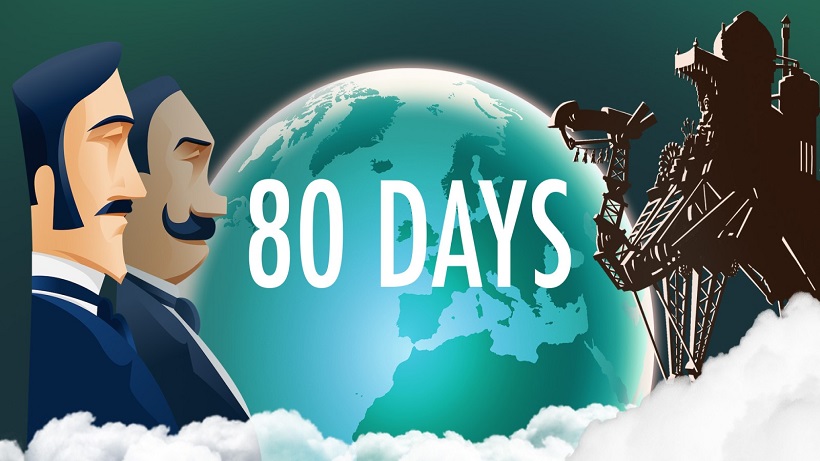
80 Days
When it comes to pure worldbuilding, nothing beats the medium of interactive fiction, allowing the reader/player to simply immerse themselves in a setting, taking in its history and trivia at their own pace. 80 Days is a great example of this power, although it doesn’t execute it consistently. As an adaptation of Jules Verne’s Around the World in Eighty Days, its premise is a built-in excuse to pinball around as many locations as possible. The prose that guides the reader through the journey is impeccable, with an eye for unexpected details and an ear for dry humour. Furthermore, the visual design is striking, and the soundtrack is perfect musical shorthand for “adventure.”
This version of the story adopts an alternate history angle, with the point of divergence being the rise of steampunk technology. This allows the tale to retain its exotic quality in the face of 150 years of exposure, while remaining in line with Verne’s pop culture legacy. One element of the alternate history is the decentralized influence of the Northern Hemisphere on 19th-century global events. It’s a brilliant decision, because it gives players a reason to explore the entire world, not just the most visibly expedient route. But that brings me to the cognitive dissonance that ultimately undoes 80 Days: it adds a time limit to a genre that’s best suited to thorough atmospheric absorption.
Technically, you’re free to ignore the day counter, but doing so will make the resource management gameplay into pointless busywork. Admittedly, the gameplay is already a weak link; the opaque and chance-based nature of route discovery and future events makes decision-making a permanent gamble, but the foundation of balancing funds and health with travel time and convenience was a worthy inclusion. Meanwhile, adhering to the timer will result in innumerable unexplored locations and abandoned narrative threads. Multiple playthroughs are presumably the intended solution, but in that case, the inevitable repeated dialogues will wear out their welcome. 80 Days is a unique and interesting experience no matter how you play it, but the opportunity cost associated with each style prevents it from being enjoyed to its full, enormous potential.